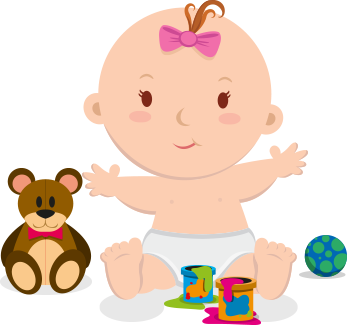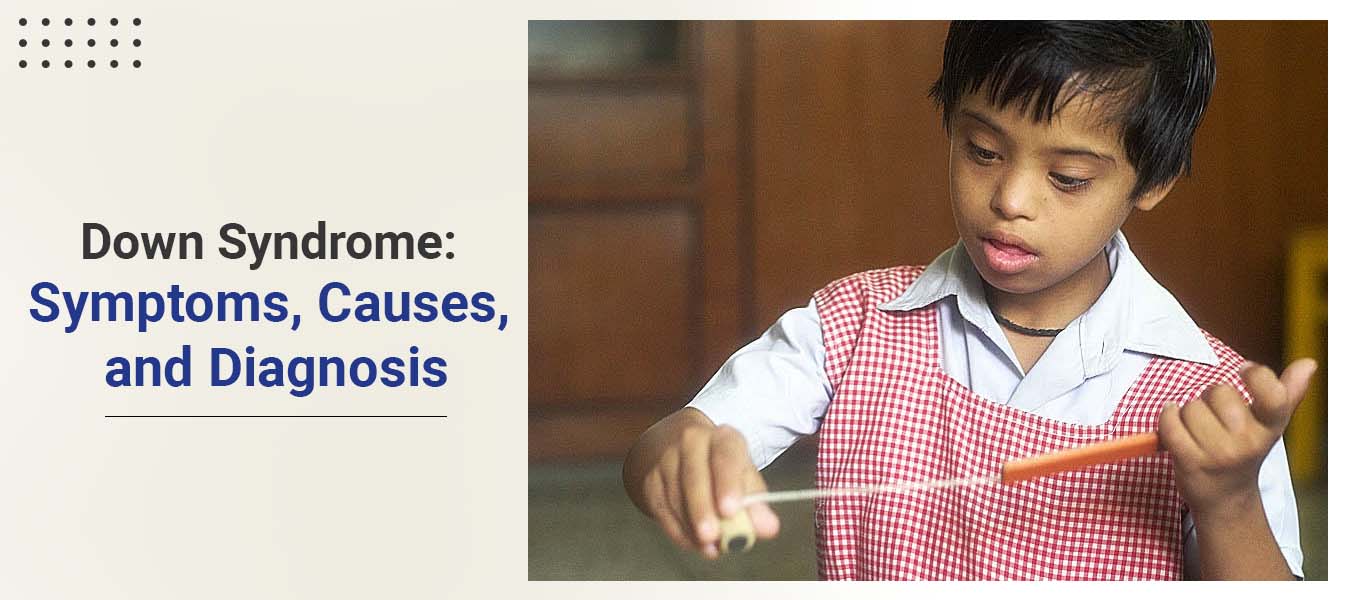What is Down Syndrome?
Down Syndrome is a genetic disorder that is caused when the baby is born with extra chromosome number 21, and sometimes also called ''trisomy 21''. The condition is associated with mental and physical development delay and can also be a possible cause of some health problems in children with down syndrome. According to the best child development center in Agra, physical features and medical problems linked to down syndrome differ from child to child, and with early diagnosis, health problems can be managed well. According to the Indian Academy of Pediatrics, around one in 800 children are born with down syndrome.
What Causes Down Syndrome?
A baby inherits genetic information from its parents through a set of 23 pairs of chromosomes, 46 in total. In the case of down syndrome, the child inherits an extra chromosome in the 21st set of chromosomes which means the 21st set of chromosomes forms a trisomy. This extra chromosome causes delayed mental and physical development in children. Around 95% of the time, Down Syndrome is caused by trisomy of chromosome number 21. The other 5% of Down Syndrome cases can be caused due to improper division of chromosomes during fertilization called Mosaic Down Syndrome or translocation of a portion of a chromosome called Translocation Down Syndrome.
What Are The Symptoms of Down Syndrome?
Symptoms of Down Syndrome differ from individual to individual. Some children may suffer mild symptoms while some may have severe health and developmental issues. As per the best child specialist doctor in Agra, not all children with Down syndrome have identical features, but some of the more common features include:
Short neck
Flattened face
Small head
Protruding tongue
Poor muscle tone
Upwards slanting eyelids
Unusually shaped small ears
Broad and small hands with a single crease
Excessive flexibility
Small hands and feet
Tiny white sports of the iris of eyes
Shorter height
According to the top child doctor in Agra, children with Down syndrome are smaller in height and have somewhat stunted growth. Also, most children with Down syndrome have a cognitive development impairment, delayed speech, and both short and long-term memory are affected.
How Is Down Syndrome Diagnosed?
Two prenatal tests are involved to determine Down syndrome in the child. First some screening tests and the other diagnostic tests. Screening tests are cost-effective but are not definitive of the presence of down syndrome in children, but diagnostic tests are employed to properly determine the presence of down syndrome in a child. If you feel your child might have Down syndrome, consult with the best baby doctor in Agra to get proper assistance and information about the tests involved.
Complications of Down Syndrome in Children
Children with down syndrome can suffer from a variety of complications which can become prominent as they grow older. The complications include a variety of conditions like immune disorders, heart defects, Gastrointestinal defects, obesity, sleep apnea, leukemia, sleep problems, and many other endocrine problems, dental problems, seizures, ear infections, and hearing and vision problems.
According to the best child developmental center in Agra, there is no such treatment for Down Syndrome but with early detection, some symptoms can be managed. Also, there are plenty of support and educational programs to help the child and family cope with the condition. For children with Down syndrome, getting routine medical care and treatment can help in maintaining a healthy lifestyle. As per the neonatology hospital in Agra, life expectancy for an individual with Down syndrome has significantly improved, though they face many challenges throughout, with a stronger support network of family and professional health care providers, they are thriving.
References:
https://iapindia.org/pdf/care-of-child-with-down-syndrome.pdf
https://www.mayoclinic.org/diseases-conditions/down-syndrome/symptoms-causes/syc-20355977
https://www.healthline.com/health/down-syndrome
https://kidshealth.org/en/parents/down-syndrome.html



